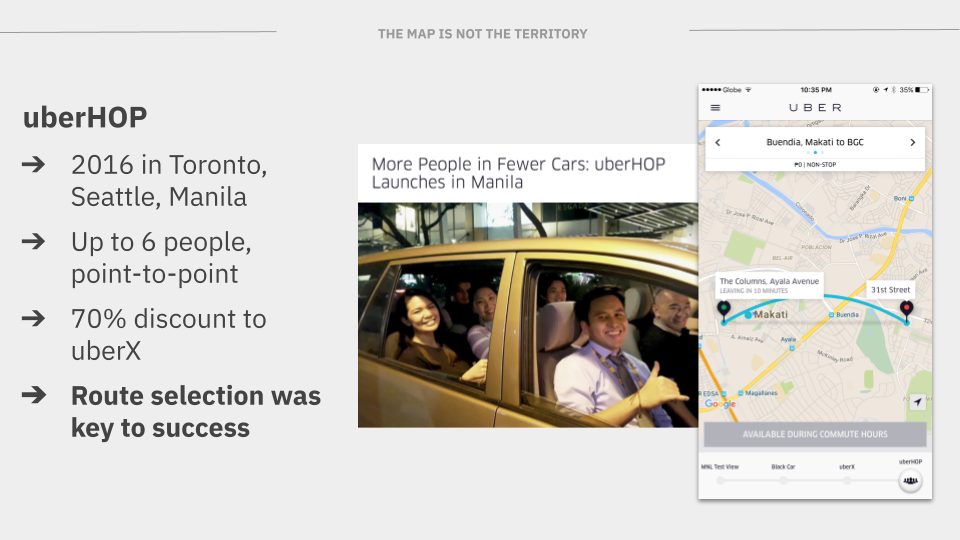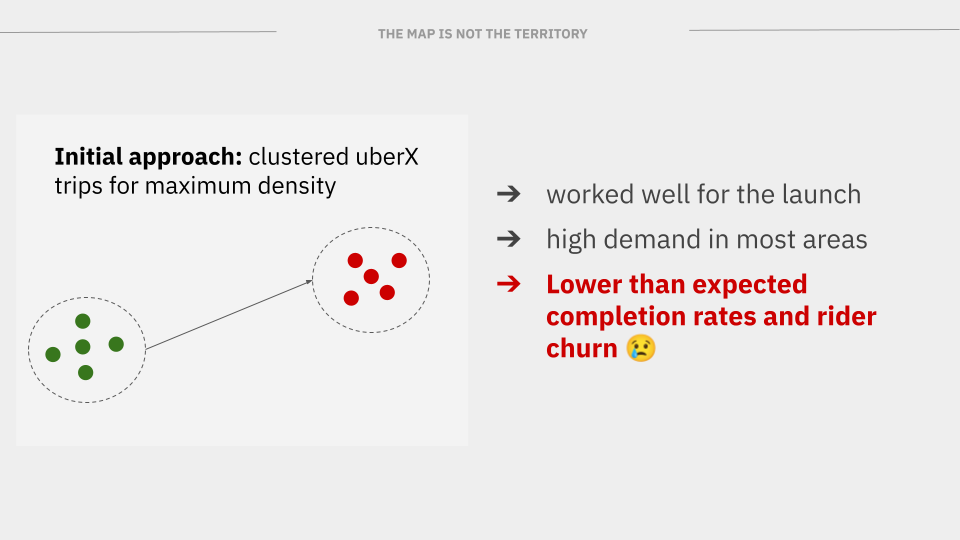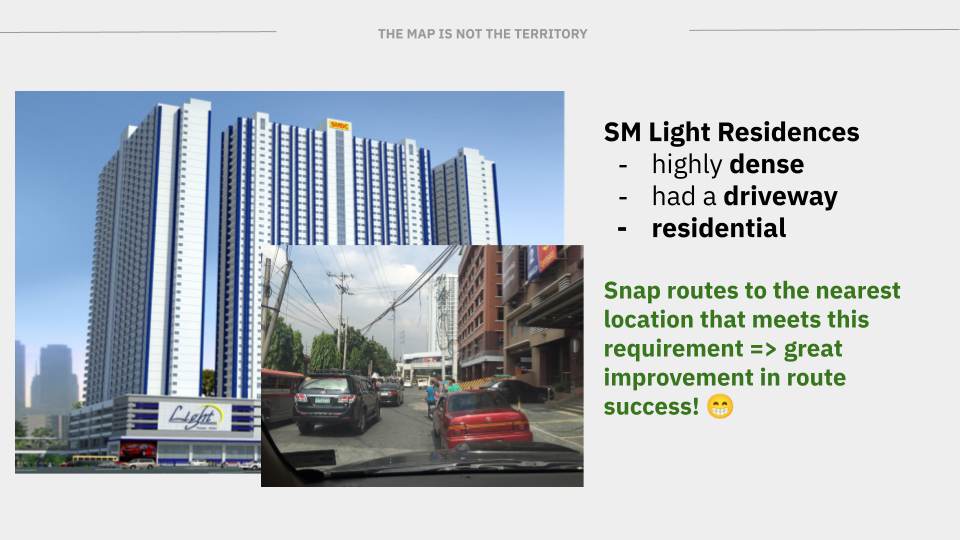👋 Hey there! I'm TJ. I write about data products, technology, software, and economics.
I'm a husband and father, living in Singapore, and from the Philippines. I explore data engineering and accounting at Titanium Birch.
Decision Reversibility

You can always make fast decisions if decisions are reversible. Don’t get caught up in analysis paralysis when you could have committed and reverted in the same amount of time.
The Map is not the Territory
The map is not the territory; seek ground truth whenever possible to accelerate learning.
uberHOP is a little example from my experience. The product was a point-to-point (a.k.a UV express) service Uber launched in Manila, along with Seattle and Toronto.
The way it worked was simple: you would make a request to take a specific route during peak hours, and we would batch you in with up to 6 people to take a high occupancy vehicle along the route.
uberHOP needed high occupancy to become profitable
The pricing was at a 70% discount to uberX (the traditional ride product), and drivers were guaranteed earnings, so there was a minimum average occupancy needed to hit profitability. To get to that high occupancy, we needed to ensure that the routes selected were of high quality.

Initial approach: Clustering!
My first instinct as a data person was [[clustering]]. We needed to find pairs of longitude and latitude that had enough pickup and dropoff density in them to have a decent chance of becoming profitable.
The launch routes were selected using this method, but we had limited success, even after a novelty period, cancellation rates remained high. I tried different algorithms, distance metrics, using various map features, dispatch radiuses, all for very incremental gains.

We used clustering to find initial approaches, but the results were not as expected.
Seeking ground truth
What did help was to actually seek ground truth, and the solution was embarrassingly obvious.
When we physically went to the most successful route’s pickup, the two key factors were: (a) high density residential buildings (as opposed to commercial), and (b) a driveway so drivers weren’t a moving target.

SM Light Residences was a great pickup that embodied all the factors that were required for a good pickup
We were able to turn the product profitable in a few weeks! This was easy to do because I was physically located in the market. However, this is a perennial challenge for distributed teams, so it’s even more important to consciously seek ground truth in those situations.
Here’s an abridged version in Twitter thread form:
The map is not the territory; seek ground truth whenever possible to accelerate learning. 🧵
— TJ Palanca (@tjpalanca) September 17, 2021
Here's a little example from my experience: uberHOP was a point-to-point (a.k.a UV express) service we launched in Manila. We needed high occupancy so route selection was critical. pic.twitter.com/dfGdDlfE1j
aliases: - content/thoughts/2021-09-18-the-map-is-not-the-territory/the-map-is-not-the-territory.html - posts/2021-09-18-the-map-is-not-the-territory - thoughts/the-map-is-not-the-territory
Data analytics in emerging markets
I was invited by the Civil Service Commission of the Philippines to provide a short talk on data analytics in emerging markets.
I wanted to provide an organization with a rough blueprint to building a sustainable data practice in an emerging market context, including to:
- set a Data Strategy
- building Decision Systems
- achieve Data Adoption
The slides are here:
Harnessing the Power of Data
Prepared and presented this talk along with the data team at First Circle at Philippine Startup Week 2020. Focused on the practical aspects of actually creating a data function within a startup, from Data Strategy, to Data Engineering, and Data Analytics. We intentionally skipped Data Science.
Here are the slides for reference:
A data team's product is decisions

Photo by Franki Chamaki (Unsplash)
Making your data team’s main product decisions, as opposed to reports, models, or engineered systems, is a great way of communicating the value of the team internally and externally.